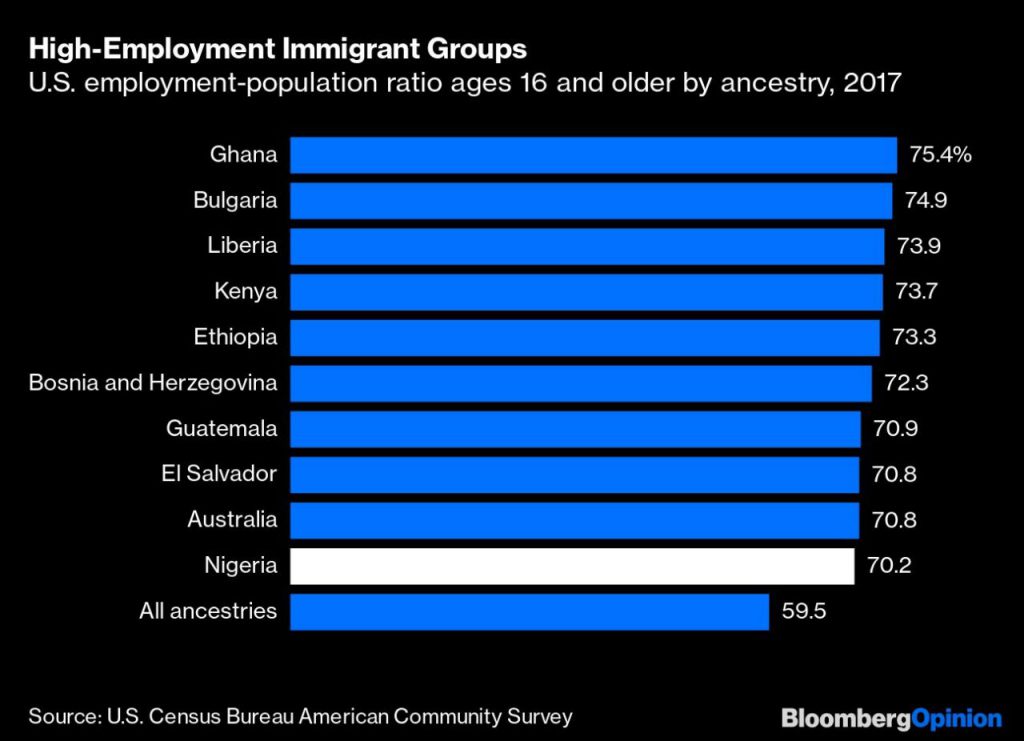
A Bloomberg columnist, Justin Fox, has written a powerful opinion shredding the reasons put up by the Trump administration to exclude Nigeria from certain class of immigration visa.
In view, except for cases of overstay of period allowed by visas, Nigerian UsS immigrants do not pose any harm to the US economy and they indeed make useful contributions to it. Nigerian are immigrants “ are for the most part doing quite well,” Fox wrote.
This column will not render a verdict on whether the White House decision last week to suspend immigration from Nigeria — the world’s seventh most-populous nation — and five other countries was mainly an expression of bigotry from an administration led by a man who once likened African countries to latrines, he further wrote.
“Nigerian-Americans are more likely to have jobs than the rest of us, and much more likely to have college degrees. They’re also much less likely to own their homes, and slightly more likely to be below the poverty line — although they’re less likely to collect the Supplemental Nutrition Assistance Program benefits commonly known as food stamps. Nigerian-Americans are younger (median age is 31.6, compared with 38.2 for the U.S. overall), more likely to live in big cities (at least, that’s how I interpret the relatively high share of public transportation users), more likely to work in education and health care (there are a lot of Nigerian-American doctors) and slightly more likely to be married.
“In putting up facts to support his view, he wrote: “The median income for households led by someone of Nigerian ancestry, for example, was $68,658 in 2018, compared with $61,937 for U.S. households overall. Here are a few other informative comparisons:
“The percentage of Nigerian-Americans 16 and older with jobs ranked them 10th among ancestries in the U.S. in 2017 (the Census Bureau’s new data portal is still going through some growing pains that prevented me from assembling these rankings for 2018).
“Nigerian-Americans also came in 10th place for the percentage with college degrees.
“Australia, Bulgaria and Nigeria are the only countries to make it into the top 10 on both rankings, which to me indicates a sort of integration sweet spot. Nigerians who come to the U.S. usually speak English before they get here, they tend to be well educated or in the process of becoming so, and they don’t seem to have much trouble getting jobs or otherwise fitting in. I don’t think these are the only things immigrant success should be judged by, and there’s something more than a little creepy about passing such judgments upon people by their country of origin. But since immigration policy in general and the new immigration bans in particular do just that, it does seem relevant that Nigerian-Americans are clearly among the most successful immigrant groups in the US.”
See full opinion titled ‘U.S. Could Actually Use More Nigerian Immigrants’ in The Rainbow opinion column











